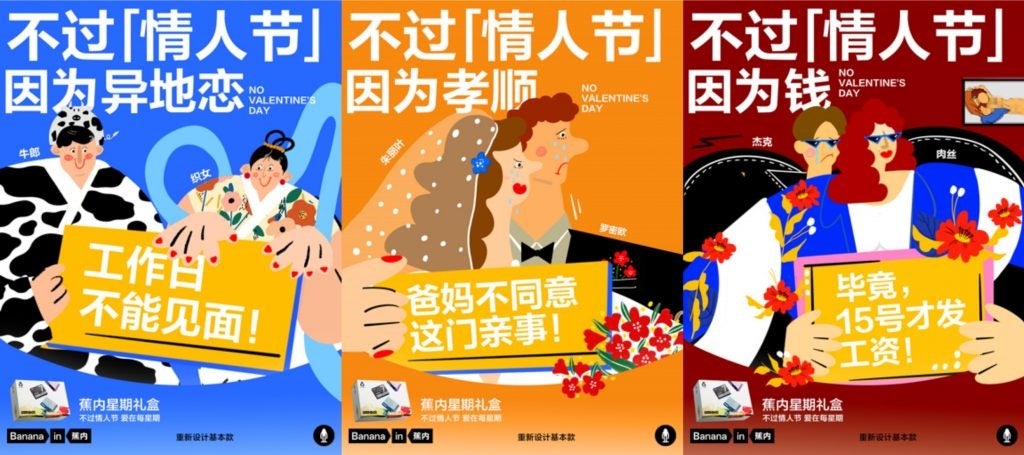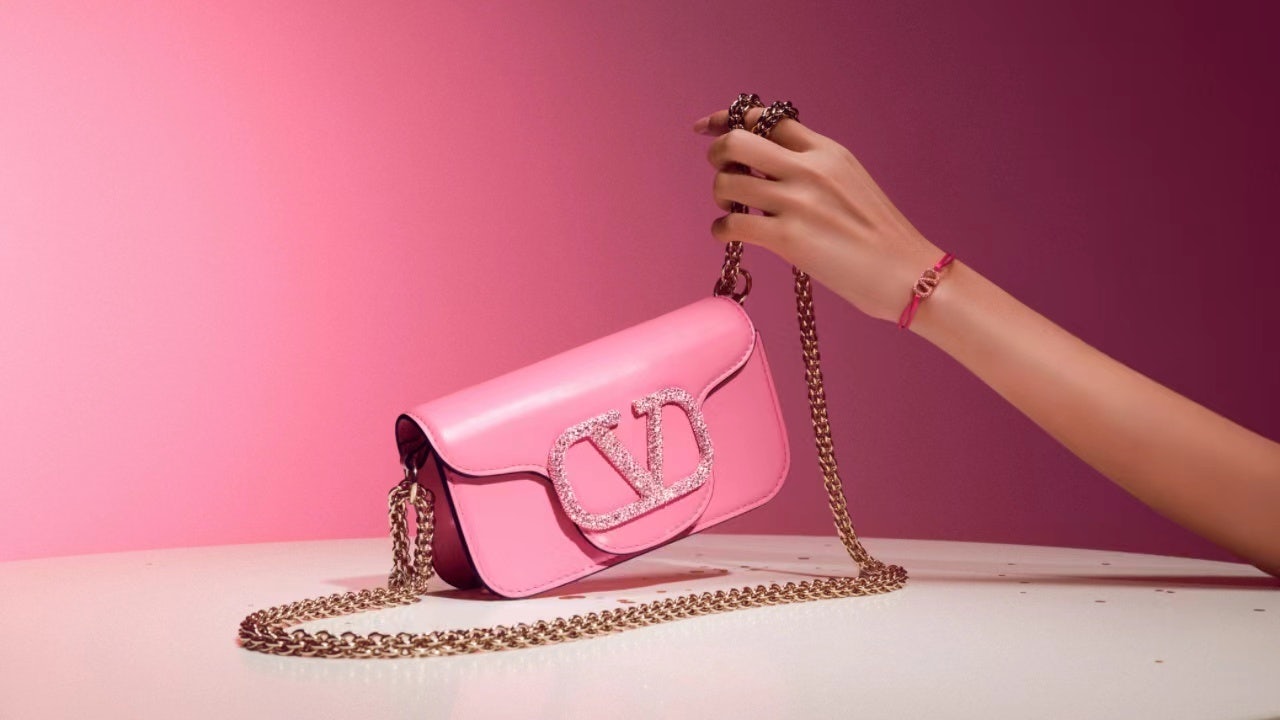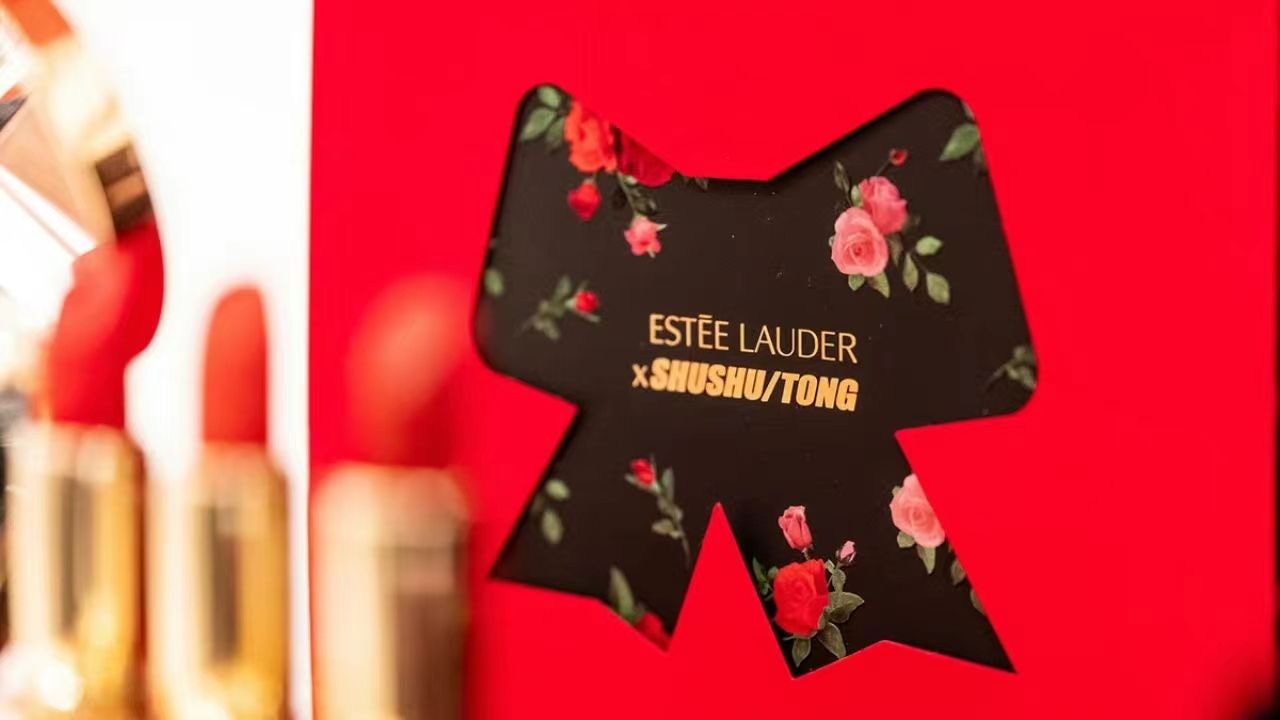What happened
This year’s Valentine’s Day seems quieter than previous ones. Social media platform Xiaohongshu recorded 50,000 posts mentioning “Valentine’s Day 2023” as of February 13, slightly lower than the same period last year, and big luxury names such as Louis Vuitton, Dior, Gucci, and Balenciaga, are not rolling out any related initiatives in China.
Though Valentino did open a pop-up store at Beijing’s SKP Mall and features a series of selected products, it hasn’t launched a limited-edition collection exclusively for the festival.
On the other hand, retail consumer brands have embraced Valentine’s Day this year. Domestic underwear retailer Bananain rolled out a series of initiatives featuring the slogan “don’t celebrate Valentine’s Day.” The intended message is that love is present everyday.
Meanwhile, lifestyle label Neiwai released a campaign video from a male perspective and collaborated with Japanese condom brand Okamoto to open an offline pop-up initiative at a local bookstore, to tap a broader male customer base.

The Jing Take
With Valentine’s Day on February 14, 520 Day on May 20, and the Qixi Festival on August 22 this year, China has more romantic holidays than most countries.
Though the origins of Valentine’s Day do not culturally resonate with local shoppers, the general public does celebrate this festival.
However, one Chinese survey found that consumers prefer traditional Chinese romantic festivals like the Qixi Festival and 520 Day over Valentine’s Day. Another iiMedia Research survey from March 2022 found that 73 percent of Chinese respondents consider Valentine's Day very important as a fun opportunity to enhance romantic relationships.
Consumer goods brands are being more active in launching Valentine’s Day campaigns in China than luxury houses, and they are doing it through unorthodox storytelling and by dropping special-edition products. Labels like Neiwai, Okamoto and Bananain have shown that unconventional Valentine’s Day messaging is making the most impact.
As Chinese consumers turn toward their own cultural heritage and the government unofficially discourages foreign festivals, Valentine’s Day is unlikely to grow in prominence in the mainland.
This dynamic explains why luxury houses have prioritized investing heavily in marketing around more local celebrations. Luxury players will likely pull out the stops for the next significant romantic festival, 520 Day.
The Jing Take reports on a piece of the leading news and presents our editorial team’s analysis of the key implications for the luxury industry. In the recurring column, we analyze everything from product drops and mergers to heated debate sprouting on Chinese social media.


